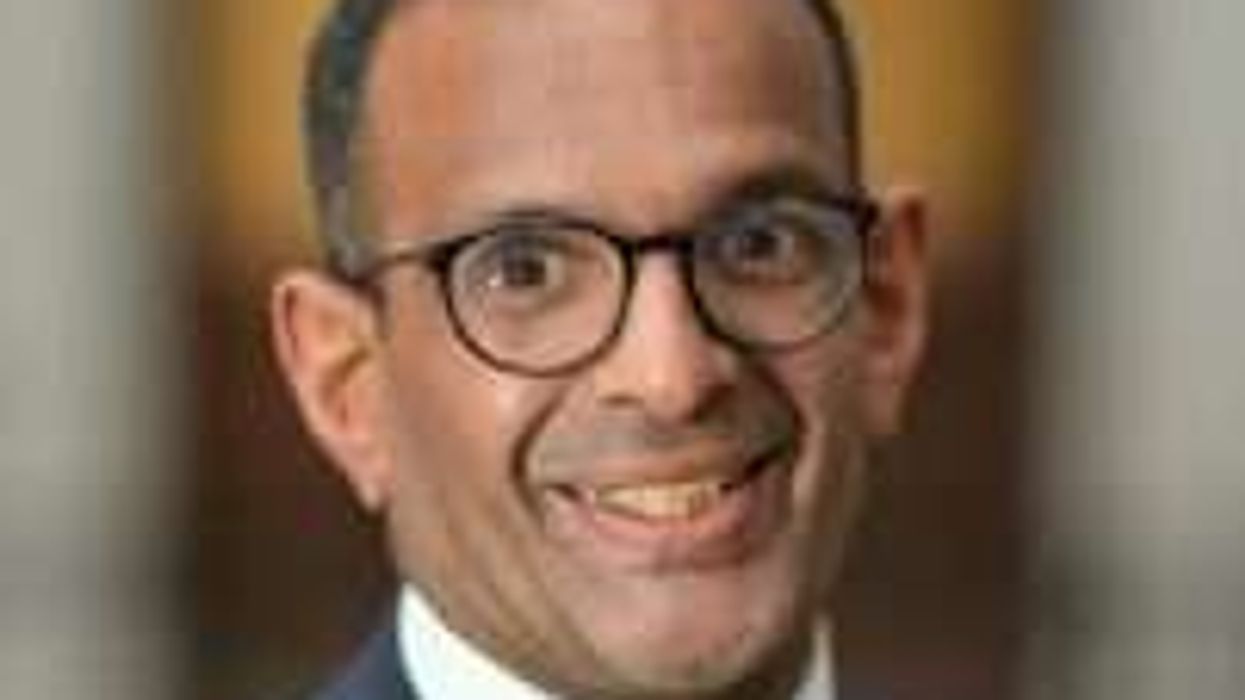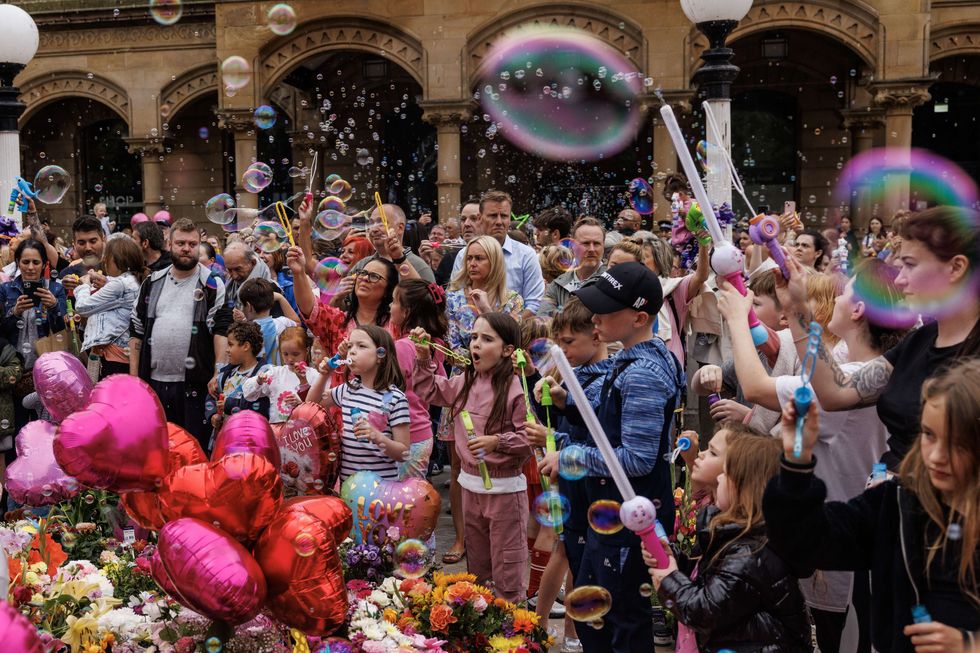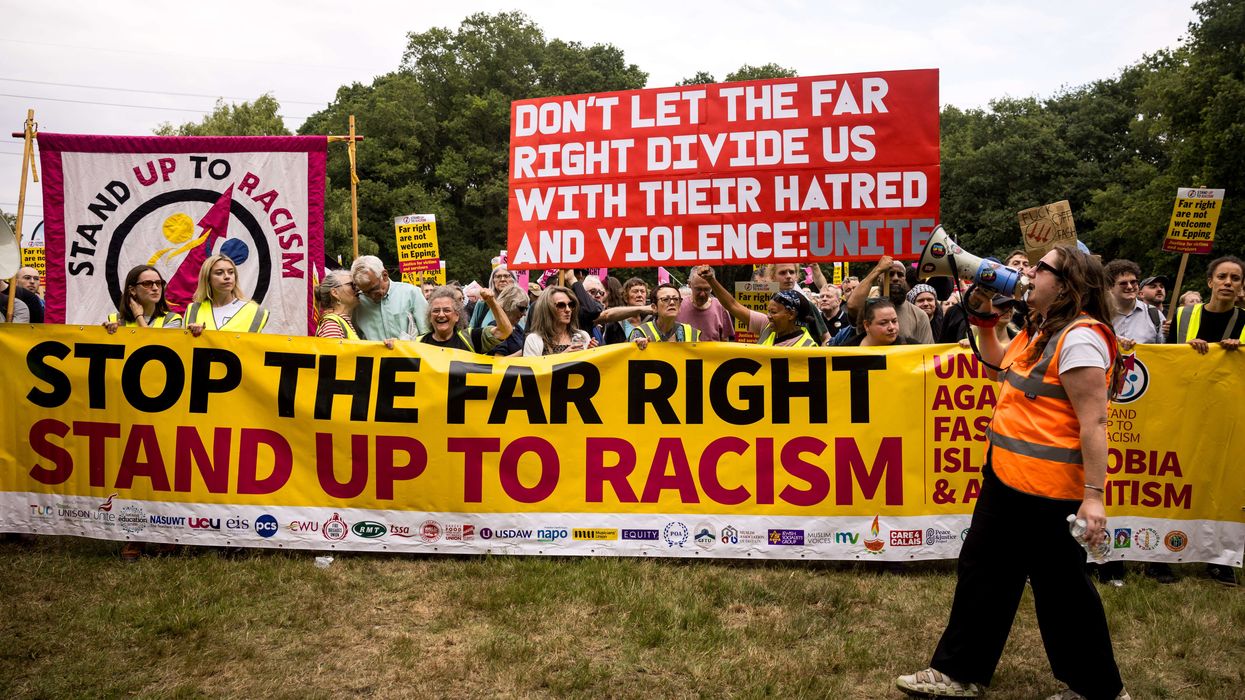HATE crimes recorded by the police in England and Wales have risen sharply, with religiously aggravated and racially motivated incidents registering a significant spike, according to the latest statistics released by the Home Office last Thursday (9).
Police forces logged 115,990 hate crimes in the year ending March 2025, a two per cent increase compared with the previous year. Race hate offences accounted for the majority at 71 per cent or 82,490 offences, followed by religious hate crimes at 7,164 offences.
Within these figures, anti-Muslim hate crimes reached a record high of 4,478 offences (45 per cent), followed by 2,873 (29 per cent) anti-Jewish crimes, 502 antiChristian hate offences (five per cent), 259 (three per cent) anti-Sikh and 182 (two per cent) anti-Hindu hate crimes.
“Hate crime statistics show that too many people are living in fear because of who they are, what they believe, or where they come from,” said home secretary Shabana Mahmood.

“Jewish and Muslim communities continue to experience unacceptable levels of often violent hate crime, and I will not tolerate British people being targeted simply because of their religion, race, or identity.”
Police patrols have been increased at synagogues and mosques around the UK following recent terror attack at a Manchester synagogue, Mahmood said.
Police forces in England and Wales are facing mounting pressure to strengthen hate crime enforcement and rebuild confidence among minority communities.
Community groups have urged the government to introduce mandatory anti-racism training within the police, alongside improved victim support and outreach in areas with growing South Asian populations.
Stephen Walcott, head of policy at the Runnymede Trust, told Eastern Eye the current wave of violence “cannot be divorced from a political agenda which sows hatred and divisions, and is promoted by the British media consistently”.
He said successive governments and mainstream parties have “flirted with racist politics for years – demonising migrants, asylum seekers and Muslims to distract from policies that have hollowed out communities and inflicted deep poverty.”
Walcott linked this to figures such as farright agitator Tommy Robinson and billionaire backers “including Elon Musk” who exploit racial tensions and “treat people of colour in the UK with complete contempt”.

The Home Office pointed to a “clear spike” in religious hate crimes targeted at Muslims in August last year, following the murder of schoolgirls at a Taylor Swiftthemed dance class in Southport and the subsequent misinformation around the UK-born attacker’s motivations and immigration status.
The number of religious hate crimes targeted at Jewish people fell by 18 per cent, from 2,093 to 1,715 offences, but the Home Office cautioned that these figures exclude data from the Metropolitan Police – which recorded a major chunk of all religious hate crimes targeted at Jewish people. This exclusion of Met Police statistics from the overall analysis is due to a change in the force’s crime recording system since February 2024, which restricts comparisons with data supplied in previous years.
Over the past two years, there have been at least eight major racially motivated attacks and violent incidents targeting south Asians. The surge, documented by police and academic researchers, shows a pattern of abuse, from verbal harassment to deadly assaults, with victims and campaigners warning that racism has become both more visible and more vicious.
A University of Leicester study, launched in parliament in 2024, revealed that 45 per cent of Asians in the UK experienced hate crime during 2023–2024, and 55 per cent of them suffered multiple incidents.
However, only one in 10 victims reported these crimes to the police, citing mistrust and a lack of confidence in authorities.
Most perpetrators were under 30 and often acted in groups, according to the study, with attacks ranging from public slurs and threats to serious assaults, sexual violence and murder.
Prominent incidents include the recent racially aggravated rape of a Sikh woman in Oldbury, the murder of 80-year-old Bhim Kohli in Leicester (2024), and coordinated riots in Hartlepool, Middlesbrough and Rotherham that targeted Asian communities and asylum seekers.
Large cities including London, Birmingham, Manchester and Leicester continue to report spikes in racially motivated attacks, with many Asians saying they now alter their routines, avoiding public transport at night or refraining from speaking in their native languages in public, to avoid harassment.
Professor Anand Menon, director of UK in a Changing Europe at King’s College London, said there is “very little doubt that the political language around race and race relations has become much nastier in recent years”.
“It’s obviously connected to the rising salience of immigration as an issue, and to the increasing popularity of a populist party that is willing to stress the cultural as well as the economic impact of immigration. So, it shouldn’t be wholly surprising that we’re seeing a rise in hate crimes,” he told Eastern Eye. Menon noted that Britain lives in “very polarised times – not just in politics, but in the wider world too, from what’s happening in Gaza to what (US president) Donald Trump is doing.”
“At a minimum, we’ve got a right to expect the head of a notionally progressive, centre-left party to speak out much more firmly and much more quickly against racism than he’s been willing to do. His reaction was quite slow and quite delayed, and people notice that,” Menon said.
He suggested that economic insecurity lies at the root of rising hate crimes. “We’ve had 15 to 20 years of very poor economic performance. People have seen wages stagnate, inflation and prices go up, and a housing crisis develop, because we haven’t built enough homes.
“When people feel economically insecure, they’re more prone to turn their anger towards immigrants and blame them for everything that’s going wrong.”
Campaigners also noted the escalation in hate crime after the Covid-19 pandemic. Hate incidents against Asians trebled in 2020, and levels have remained persistently high since. The latest England and Wales figures show decreases in hate crimes based on sexual orientation, down two per cent to 18,702 from 19,127, and disability hate crimes, which decreased by eight per cent from 11,131 to 10,224.
There was also a fall in transgender hate crimes by 11 per cent from 4,258 to 3,809, the second consecutive annual fall.





